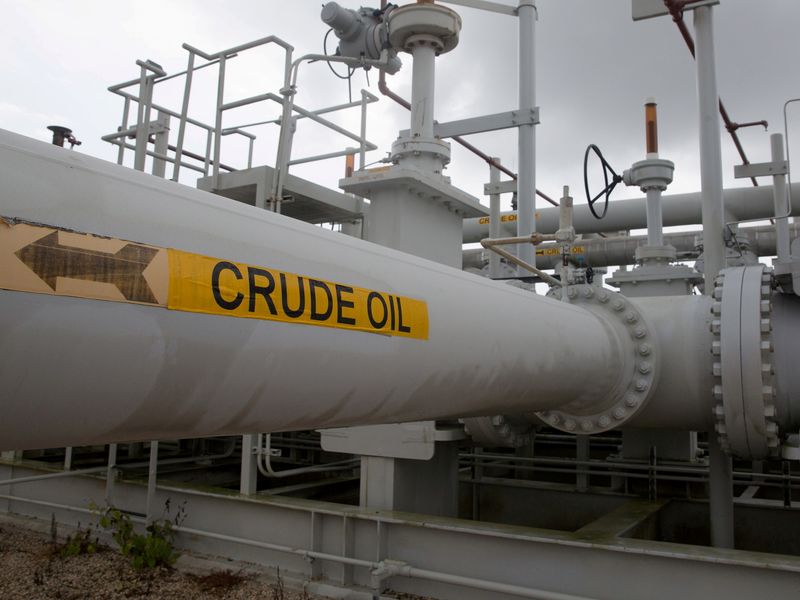By Timothy Gardner
WASHINGTON (Reuters) - The Biden administration is considering tapping the U.S. Strategic Petroleum Reserve to cool oil prices, which are raising fuel prices and driving inflation.
Such a move may not have a long-term impact on dampening U.S. oil prices that hit a seven-year high above $85 a barrel in late October, analysts say.
But releasing oil could allow the Biden administration to fend off criticism ahead of the 2022 midterm elections that it has done little to counter rising prices. It could also allow Biden to say he took action after Saudi Arabia and Russia, members of the OPEC+ production group, resisted U.S. calls to pump more oil into global markets.
Here are the issues surrounding using the SPR.
WHY WAS THE SPR CREATED?
The United States created the SPR in 1975 after the Arab oil embargo spiked gasoline prices and damaged the U.S. economy. Presidents have tapped the stockpile to calm oil markets during war or when hurricanes hit oil infrastructure along the U.S. Gulf of Mexico.
HOW MUCH OIL DOES THE SPR HOLD?
The reserve currently holds about 606 million barrels in dozens of caverns in four heavily guarded locations on the Louisiana and Texas coasts. That's enough oil to meet U.S. demand for more than a month.
Fluor Corp (NYSE:FLR), a Texas engineering and construction company, manages and operates the SPR.
The country also maintains small heating oil and gasoline reserves in the U.S. Northeast.
HOW DOES THE SPR GET OIL TO MARKET?
Because of its location near big U.S. refining or petrochemical centers, the SPR can ship as much as 4.4 million barrels per day. It can take only 13 days from a presidential decision for the first oil to enter the U.S. market, according to the Energy Department.
Under a sale, the Energy Department usually holds an online auction in which energy companies bid on the oil. Under a swap, oil companies take crude but are required to return it, plus interest.
U.S. presidents have authorized emergency sales from the SPR three times, most recently in 2011 during a war in OPEC member Libya. Sales also took place during the Gulf War in 1991 and after Hurricane Katrina in 2005.
Oil swaps have taken place more frequently, with the last exchange held in September after Hurricane Ida.
HOW COULD THIS TIME BE DIFFERENT?
Congress has passed two laws in recent years calling for sales from the reserve to help pay for government programs and a modernization of the SPR, which is constantly exposed to moist, salty air that can damage pumps, pipes and compressors.
Instead of holding an emergency sale, the Biden administration could simply sell oil from the reserve by front-loading sales that Congress has already mandated. The SPR must sell 30 million barrels between now and September 2025, but Congress did not specify exactly when the oil must be sold.
Conducting sales in this way could help the Biden administration fend off criticism from environmentalists that the president is selling oil while calling on global economies to cut greenhouse gas emissions. But front-loading sales could also make the administration vulnerable to criticism it rushed the transactions for political reasons.
WHAT OTHER COUNTRIES HAVE STRATEGIC RESERVES?
Besides the United States, the other 29 member countries in the International Energy Agency, including the United Kingdom, Germany, Japan and Australia, are required to hold oil in emergency reserves equivalent to 90 days of net oil imports.
China, an associate member of the IEA and the world's second-leading oil consumer, created its SPR 15 years ago and held its first oil reserve auction in September. Another IEA associate member, India, the third-biggest oil importer and consumer, also maintains a reserve.
U.S. presidents can also coordinate a SPR release with drawdowns in reserves by other IEA members.
